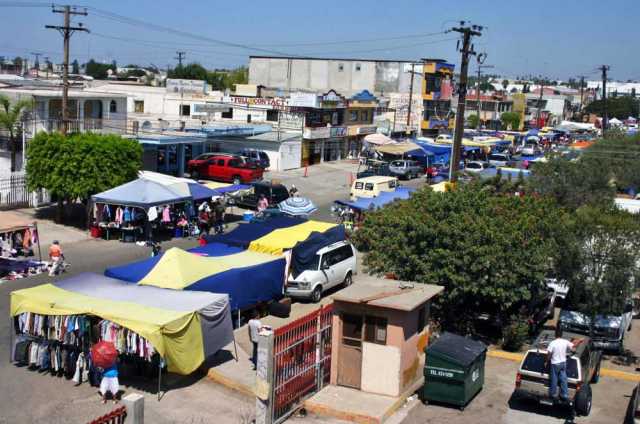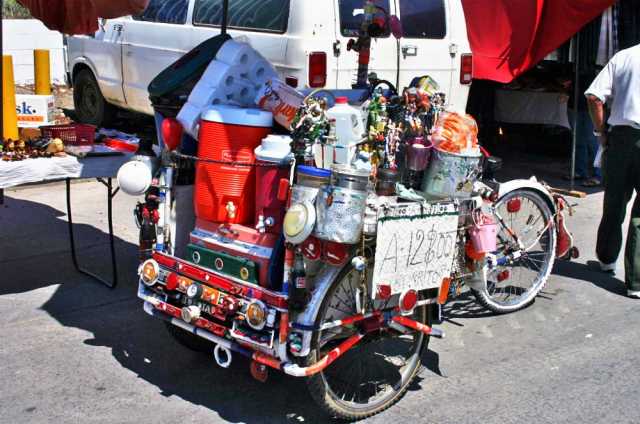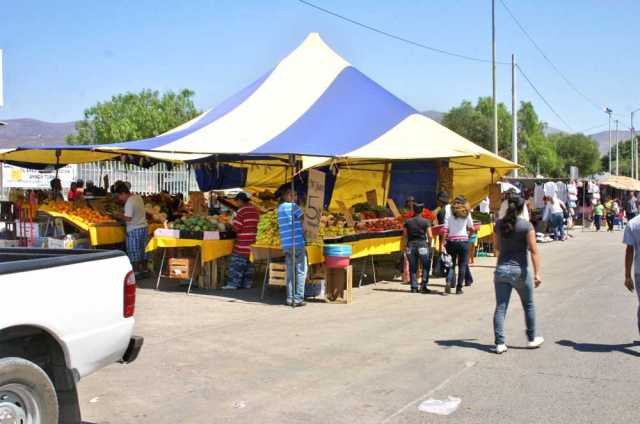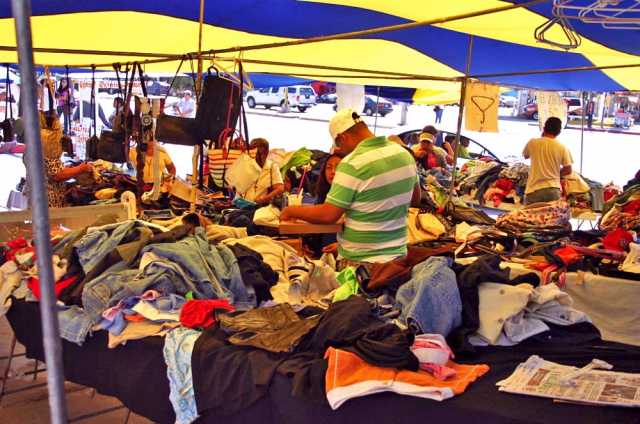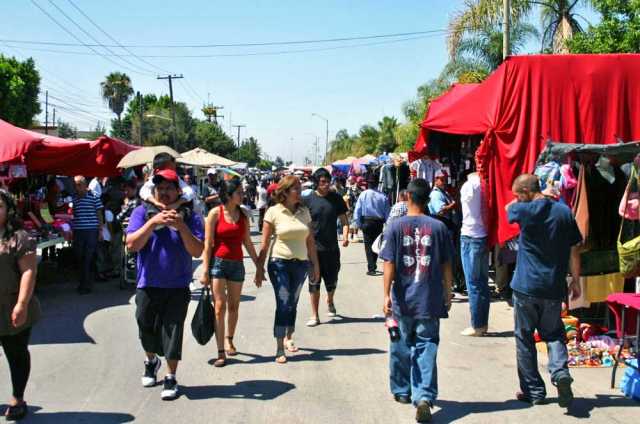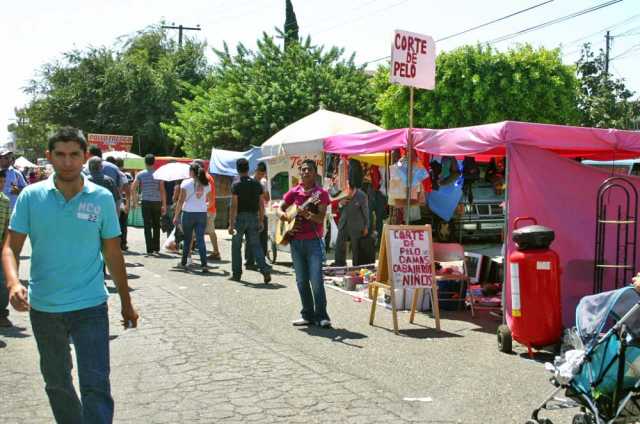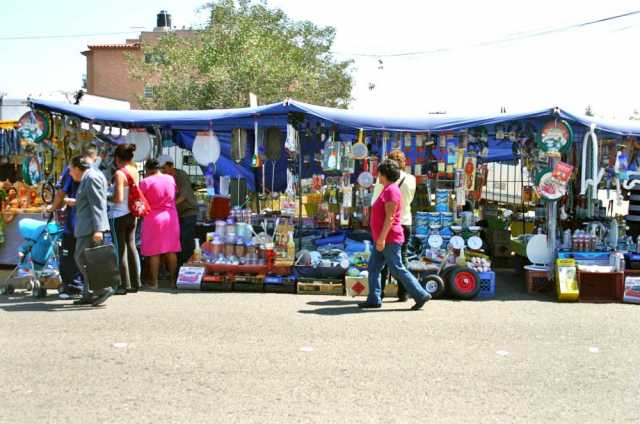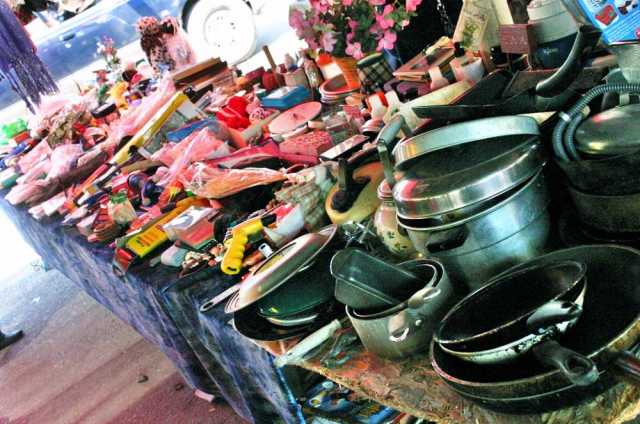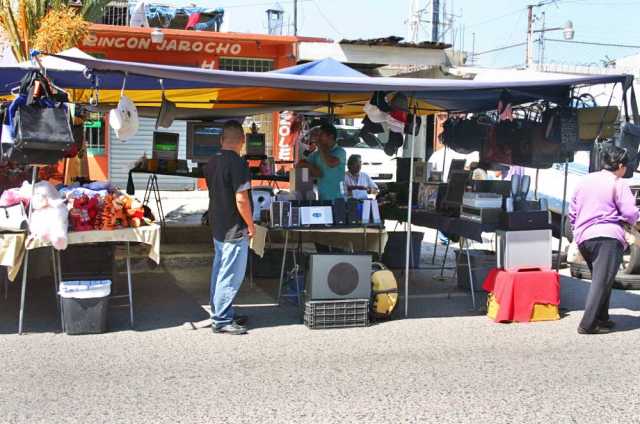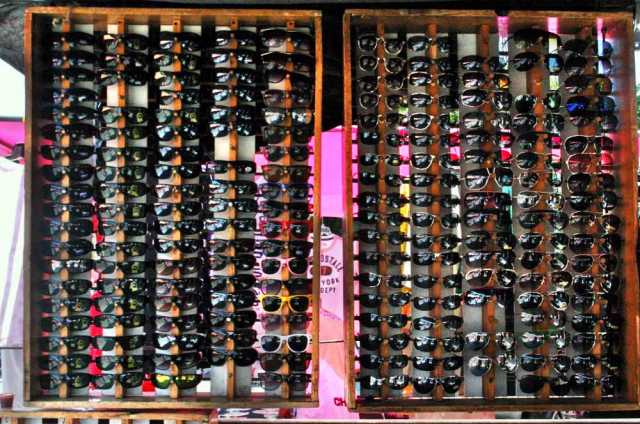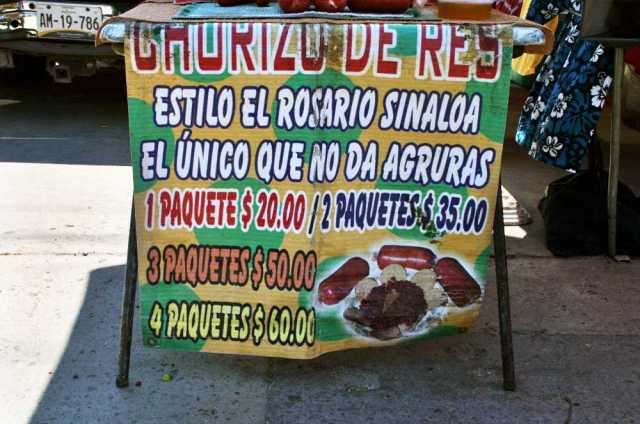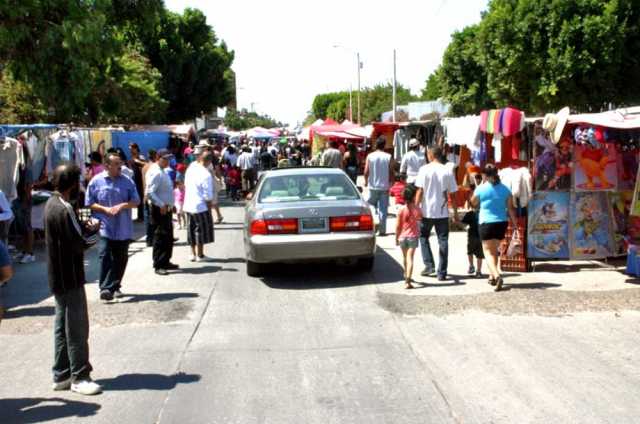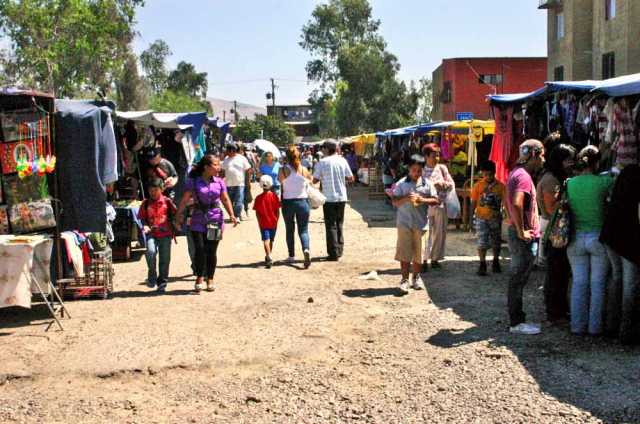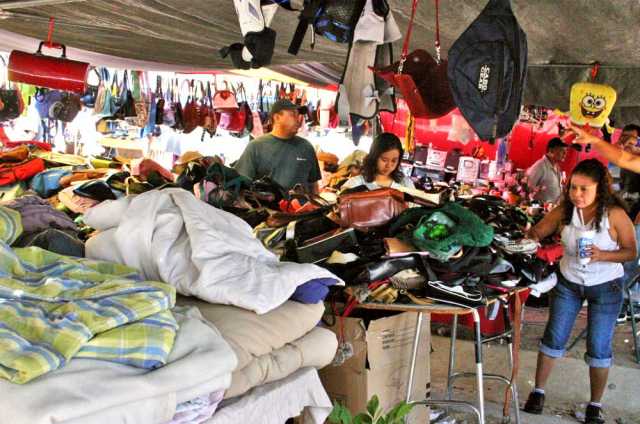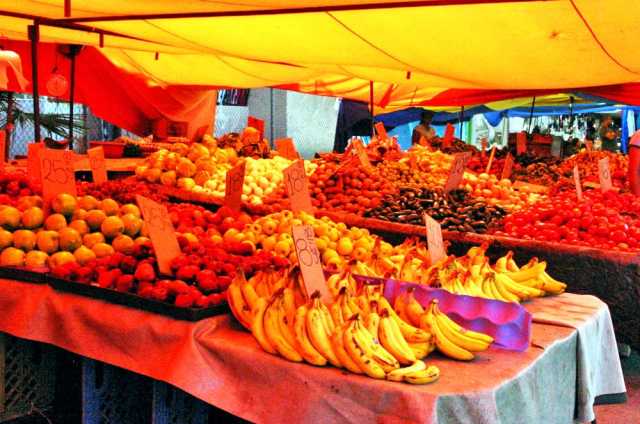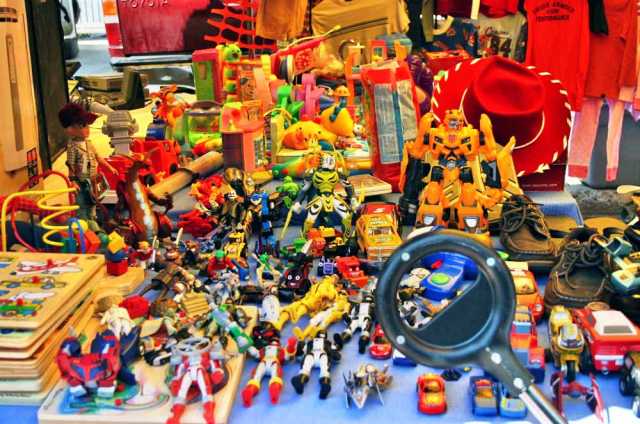Mercado sobreruedas
Border life and second hand trade
Despite nominal state regulation, the markets function with a variety of legal irregularities: none of the workers have social protection, salaries are negotiated directly with the employer and there is always the risk of losing the job. The market also breaks certain fiscal rules with the types of products that are sold. There are used goods that cross the border as trash and avoid quality regulations. Raw and cooked foods are sold without health inspection, and also some illegal merchandise, like pirated music or films, is available for purchase. On some markets, like the one in the red light district of Tijuana, one can buy drugs or use illegal services like prostitution.
Stalls selling used goods are the most common stalls in the market. Some only sell used clothes, used tools, used shoes or used computers, while other stalls sell a whole range of used goods. Most of these used goods that people sell in the sobreruedas markets in Tijuana come from California. Sarah Hill, a former researcher at Duke University, comments that “both Americans and Mexicans along the border came to rely on the vibrant economy of discards, secondhand merchandise, and in some cases, the quintessential unwanted used up good: trash itself.” (Hill, 2009: P. 299)
Hill detects a profound relation between the culture of consumption in the United States and second hand consumption in the border towns of Mexico. She explains that consumerism, as the main ideological motivation of global capitalism, demands an easy mechanism for the disposal of excess goods. This dynamic system can be seen not only in Tijuana but in numerous towns along the border between Mexico and the United States.
As consumer trends in California shift, no longer wanted goods are given to charity organizations, sold in garage sales, or simply discarded as trash. People from Tijuana have appropriated this system of primary consumption and re-use, crossing the border to buy or collect these used goods and returning with them to Mexico to be offered for sale in the sobreruedas or in another round of garage sale in their own front yards. Although second hand consumption is not unique to the border towns of Mexico, it plays a particularly strong role in the cultural fabric of these cities.
Studies
A massive open market exists underneath the Superhighway between Shenzhen and Guangzhou
read more...
read more...
Elastic borders at the Dominican ‘International Fairs’
read more...
read more...
in the Tri-Border Area of Paraguay, Brazil and Argentina
read more...
read more...
Occupying the derelict remains of a once popular resort area on the fringes of Buenos Aires
read more...
read more...
The body as a commercial vehicle
Case studies from Lima, Peru and Tijuana, México
read more...
read more...
Rom-Hoob market runs about 500 meters along both sides of the Mae Klong railway in Samut Songkhram.
read more...
read more...
A container market located outside of Odessa, at the ‘7th Kilometre’, claims to be the largest market in Europe.
read more...
read more...
as a liberated archive
read more...
read more...
Vietnamese markets sprawl on former no-man's-land along the Iron Curtain
read more...
read more...
In the border town of Tijuana more than 300 street markets provide a much needed common sphere
read more...
read more...
Four Tigers Market is a major node of the East Asian migrant community in Budapest.
read more...
read more...
A game of masquerades, Moscow's Cherkizovsky market occupies a 1980s Olympics site.
read more...
read more...
At Arizona Market in Bosnia and Herzegovina informal urbanisation intersects with post-war peacekeeping.
read more...
read more...
High-contrast developments take place just outside Istanbul's Byzantine city walls.
read more...
read more...
